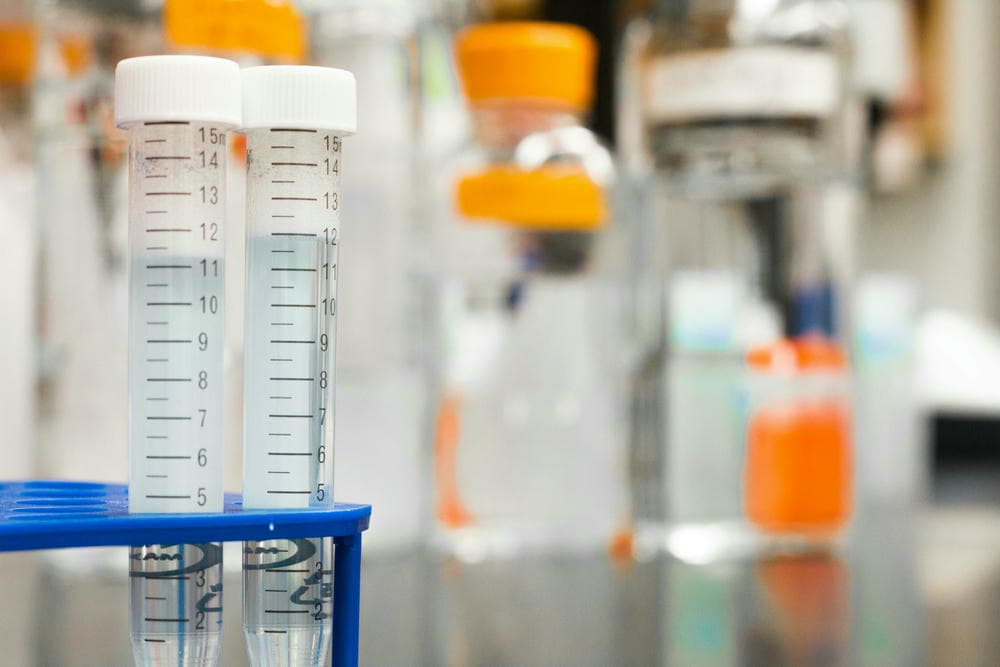VIROLOGY AND VACCINES
The Virology Laboratory of the Department of Medical Biotechnologies at the University of Siena aims to develop new approaches for creating safe and effective viral vectors to deliver antigens that induce a protective and persistent immune response in humans. Additionally, another area of focus for the Virology Laboratory is the study of viruses transmitted by hematophagous vectors (e.g., mosquitoes and sandflies), known as arboviruses, such as Dengue virus, West Nile virus, Rift Valley fever virus, and others.
To achieve this, we primarily use molecular biology techniques and cell cultures. Thanks to the presence of a biosafety level 3 laboratory (BSL3) where highly contagious viruses can be manipulated, we have the opportunity to study viruses such as SARS-CoV-2.
The main activities involve studying the genetic evolution of SARS-CoV-2 using modern sequencing methods (Next Generation Sequencing, NGS), testing the extent and duration of patients’ vaccine coverage against genetic variants of the virus, and studying SARS-CoV-2 pathogenesis by focusing on in vitro studies of the activity of some of its proteins. Currently, a vaccine based on a virus rendered harmless through molecular biology methods is being developed against SARS-CoV-2. This approach can be used for developing vaccines against other viruses.
Furthermore, molecular techniques allow for monitoring the entry of dangerous viruses transmitted by hematophagous vectors (e.g., mosquitoes and sandflies), known as arboviruses, such as Dengue virus, West Nile virus, Rift Valley fever virus, and others, both in mosquito samples captured in the Siena area and in patients for early diagnosis. Studies conducted on the Toscana virus (TOSV), an arbovirus causing summer meningitis in Tuscany and the Mediterranean basin, have allowed for the first-time identification of the antagonistic activity of its NSs protein against innate immunity. Moreover, thanks to the production and purification of TOSV proteins using genetic engineering and biochemical methods, vaccine prototypes against the infection have been tested.
Currently, the laboratory has 5 active competitive grants related to the study of emerging viruses, the development of new vaccine strategies, the pathogenicity, genetic variability, and spread of arboviruses (Toscana virus and West Nile virus), and the immune response to SARS-CoV-2.”
Active projects
PRIN 2022-PNRR (Projects of Relevant National Interest – Ministry of University and Research)
Title: “Determinants of neuropathogenicity of emerging strains of Toscana virus and West Nile virus circulating in Italy”
Duration: 2023-2025
Coordinator: Prof. Maria Grazia Cusi (PI)
PRIN 2022 (Projects of Relevant National Interest – Ministry of University and Research)
Title: “Systems vaccinology and innovative immunological approaches to investigate the impact of biological sex on COVID-19 mRNA vaccine immunogenicity, reactogenicity, and safety.”
Duration: 2023-2025
Coordinator: Prof. Luisa Barzon (PI), University of Padua
CCM (Center for Disease Control and Prevention), Ministry of Health
Title: “Surveid-pilot study for the surveillance of potential threats from emerging infectious diseases (EIDs) of viral origin through a diagnostic platform based on next-generation metagenomic sequencing (MNGS)”
Duration: 2022-2024
Coordinator: I.R.C.C.S. Policlinico San Matteo Foundation based in Pavia
PNRR CN3 (National Recovery and Resilience Plan) – Ministry of University and Research (MUR), European Community
Title: “National Center for Gene Therapy and Drugs based on RNA Technology”
Duration: 2022-2025
Proposer: University of Padua
PNRR PE13 (National Recovery and Resilience Plan) – Ministry of University and Research (MUR), European Community
Title: “One Health Basic and Translational Research Actions addressing Unmet Needs on Emerging Infectious Diseases”
Duration: 2022-2025
Proposer: University of Pavia”

